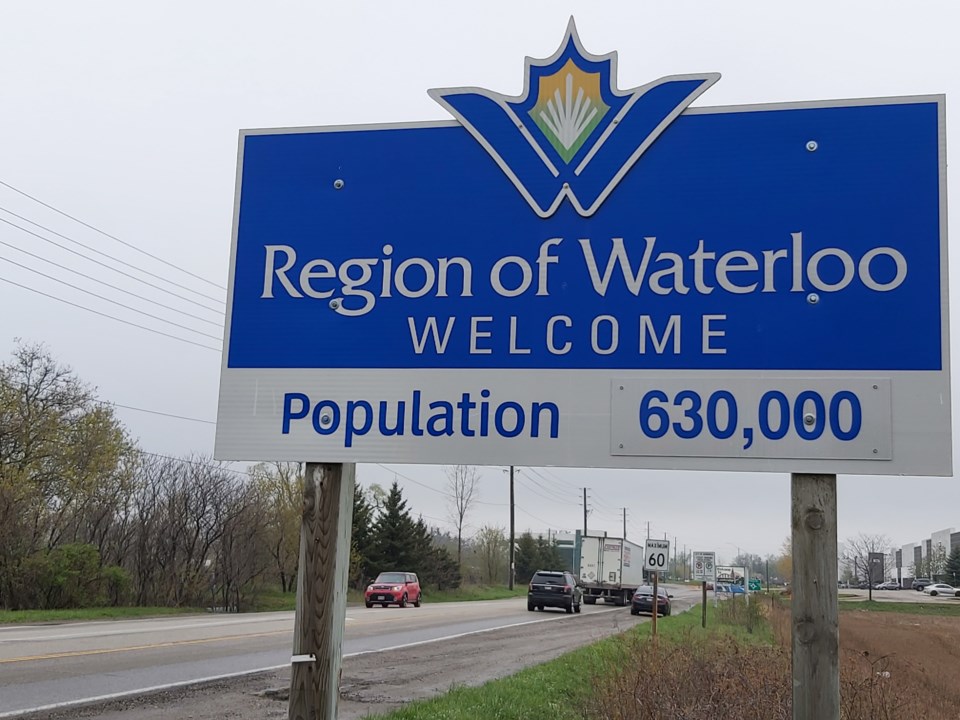Now that the province has announced Peel Region will be dissolved by 2025, local politicians are weighing in on the idea of splitting the cities and townships of Waterloo region.
Following Thursday's announcement the province will begin the process to dissolve the Region of Peel and make Brampton, Caledon and, Mississauga stand on their own by Jan. 1, 2025, Municipal Affairs and Housing Minister Steve Clark said a facilitator will be assigned to Waterloo region, Durham, Halton, Niagara, Simcoe, and York in the coming weeks to assess the continued viability of the upper tier governments.
"These facilitators will be tasked with reviewing whether the upper-tier government continues to be relevant to the needs of its communities or whether the lower-tier municipalities are mature enough to pursue dissolution," said the provincial government’s news release.
The announcement took some long-standing local politicians by surprise knowing amalgamation had been floated for years as the most likely scenario for Waterloo region.
The move in Peel Region is touted as "decisive action" to help those municipalities build more homes.
When the facilitators were announced in November, the thought among most upper and lower-tier municipalities on that list, particularly in Waterloo region, was that amalgamation would be the most likely outcome.
Six months later, the province appears to be taking a different approach to tackling the housing crisis.
Cambridge Mayor Jan Liggett was unavailable for comment Friday, but regional Chair Karen Redman thinks the seven member municipalities in Waterloo region are different than Peel and have worked well together under the current structure for 50 years.
"I have heard from residents that a Peel-style approach would not work in our community,“ Redman wrote in a statement emailed to CambridgeToday.
She added they will work collaboratively with the facilitator and the province.
Regional councillor Doug Craig had a different take on the news, saying he was surprised by the idea of dissolving upper tier municipalities instead of amalgamating them into one mega city.
In Waterloo region, the idea of amalgamation has been floated for decades with the thought that it would lead to savings for taxpayers, reduce red tape and eliminate the confusion of dealing with different levels of government for different services.
Craig hopes this week's news means amalgamation is finally off the table for Waterloo region, repeating what he said numerous times as the city's mayor; that it wouldn't save taxpayers a dime and Cambridge would "just become the lost suburb" in that scenario.
Dissolution of the region, on the other hand, with Cambridge emerging as a stand-alone municipality might be a best case scenario for residents, he said.
The idea is particularly appealing to Craig given the current regional structure which only gives the city three votes out of 16 on regional council versus the four representing the four townships, which have a combined population less than half of Cambridge's.
But could Cambridge afford the move to becoming a single-tier municipality?
The former Cambridge mayor says in the short term, residents would likely have to shoulder higher taxes to cover the added costs of taking on services currently managed by the region.
The region's portion of the annual property tax bill is 51 per cent, so if dissolution was to happen, money collected from Cambridge ratepayers would go directly to the city to fund its added responsibilities. They include police, waste collection, public health, paramedics, transit, along with shared services like water distribution, wastewater, and roads.
All of it would have to be sorted out before a full break from the region, and the cities of Kitchener and Waterloo, is feasible.
He thinks it would take about five years and considerable help from the province.
As to what could happen to the four townships that are part of Waterloo region, Craig believes the cities that would be formed by a dissolution could each "absorb" a neighbouring township.
In the city's case it would make the most sense for that merger to happen with North Dumfries, he said.
With Mississauga, Brampton and Caledon, the transition is being managed by a provincially appointed board expected to be formed sometime this year.
If Waterloo region is to remain intact once the province's facilitator has assessed the continued viability and efficiency of the 50-year-old upper-tier municipality, Craig believes at the very least reforms need to happen to give Cambridge more weight at regional council.
Details on who the local facilitator will be and the timing of their appointment is under development, said Ministry of Municipal Affairs and Housing spokesperson Melissa Diakoumeas on Thursday.



